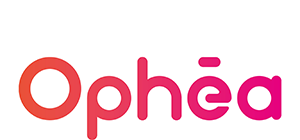
In this article, Anis MAAZ (ESSEC Business School, Global Bachelor in Business Administration (GBBA), 2023-2027) shares his professional experience as a Financial Analyst at Ophéa.
Introduction
As a Global BBA student at ESSEC Business School, I had the opportunity to join Ophéa as a Financial Analyst Intern during the summer of 2024. This four-month experience gave me hands-on exposure to financial reporting, budget monitoring, and compliance work within the public housing sector.
My missions ranged from participating in profit and loss commissions overseeing €68 million in annual investments, to preparing balance sheets and income statements, and conducting property tax audits. In this post, I will share my professional journey at Ophéa and reflect on how financial analysis supports decision-making in mission-driven organizations.
This experience allowed me to see firsthand how management control systems function in practice. Management control is the process by which managers influence organizational members to implement strategy. At Ophéa, financial analysis was not just about numbers, it was about creating information flows that enabled strategic decision-making in resource allocation, cost optimization, and compliance management.
About Ophéa
Ophéa is a public housing authority (Office Public de l’Habitat) based in Strasbourg, serving the Grand Est region of France. As a social landlord, Ophéa manages thousands of affordable housing units and oversees approximately €68 million in annual investments dedicated to property maintenance, renovations, and new construction projects.
Logo of OPHEA.

Source: the company.
Public housing authorities in France operate under strict regulatory frameworks, balancing social missions with financial sustainability. This requires rigorous budget management, transparent financial reporting, and careful cost optimization, all areas where the finance team plays a central role.
My Internship
During my internship at Ophéa, my missions focused on three main areas: Budget Monitoring and Profit & Loss Commissions, Balance Sheets and Income Statements, and Property Tax Analysis and Compliance Audits.
Budget Monitoring and Profit & Loss Commissions
I contributed to monthly profit and loss commissions, where the finance team reviewed budget execution across all departments. With €68 million in annual investments, tracking variances between forecasted and actual spending was critical. I extracted data from the accounting system, identified significant deviations, and prepared summary reports for management review.
Balance Sheets and Income Statements
A core responsibility was preparing and updating the company’s balance sheets and income statements using Excel. I consolidated financial data from various sources, ensured consistency across accounts, and formatted reports according to public accounting standards. This required attention to detail and understanding how transactions flow through financial statements.
Property Tax Analysis and Compliance Audits
I conducted detailed property tax analyses for Ophéa’s property portfolio, auditing over 150 individual tax assessments. My role was to verify tax calculations, identify discrepancies, and ensure regulatory compliance. Through systematic review, I identified more than €20,000 in annual overpayments across multiple properties, primarily due to outdated property classifications and incorrect square footage assessments. By filing correction requests with tax authorities, I helped recover these funds and optimize ongoing tax expenses by roughly 3% for the affected properties..
Required Skills and Knowledge
This internship demanded both hard and soft skills. On the technical side, I worked extensively with Excel, pivot tables, advanced formulas (VLOOKUP, INDEX-MATCH, SUMIFS), and data validation. I also learned public accounting principles according to French standards.
Beyond tools, discipline and consistency were essential. In financial reporting, small errors compound quickly. I learned to double-check figures, reconcile accounts systematically, and maintain clear documentation. Speed also mattered: closing processes run on tight schedules, and producing accurate reports quickly became a key skill.
What I Learned
This experience gave me a realistic view of financial analysis in practice, especially in a regulated environment.
First, I learned that discipline is the foundation of financial work. When preparing statements that will be audited by public authorities, every line must be traceable and justified. I developed habits around data validation and structured workflows that will serve me throughout my career.
Second, I understood how financial reporting operates as a diagnostic control system, where variance reports don’t just track performance but enable strategic conversations about resource allocation, project prioritization, and operational challenges. Financial data became the language connecting operational reality with strategic objectives.
Third, I gained confidence with Excel as a professional tool, moving beyond basic spreadsheets to building dynamic models and automating repetitive tasks. For instance, I created a pivot-table that reduced my reporting time by approximately 30%, allowing the team to focus on analysis rather than data compilation.
Finally, this internship confirmed my interest in investment-related careers. While operational, it gave me a solid foundation in financial mechanics, how companies track performance, manage budgets, and ensure compliance. These skills are directly transferable to roles in investment analysis or corporate finance.
Financial Concepts Related to My Internship
I present below three financial concepts related to my internship experience: budget variance analysis, accrual accounting, and working capital management.
Budget Variance Analysis
During monthly reviews of Ophéa’s €68 million investment budget, I analyzed variances across 5+ active projects. For example, I identified a renovation project that exceeded its initial budget by 10% (approximately €150,000) due to unforeseen structural issues. By documenting this variance and presenting it to management with supporting data, I helped facilitate timely discussions with project managers about cost controls and timeline adjustments.
Variance analysis is fundamental in public institutions where financial transparency is required, and it is a core skill in investment analysis when evaluating company performance against guidance.
Accrual Accounting
Accrual accounting records revenues and expenses when they are incurred, not when cash changes hands. At Ophéa, if we invoiced rent in December but received payment in January, revenue was still recorded in December. This provides a more accurate picture of financial performance but requires careful tracking. I learned to reconcile accounts receivable and payable, ensuring that transaction timing aligned with service delivery. Understanding accruals is essential for analyzing financial statements in investment decisions.
Working Capital Management
Working capital is the difference between current assets and current liabilities, which measures short-term financial health. Ophéa’s operations required careful cash flow planning: rent collection had to cover ongoing expenses. During property tax audits, I identified €20,000 of overpayments that tied up cash unnecessarily. By correcting these and claiming refunds,we improved cash availability for priority investments. Investors closely monitor working capital trends because deteriorating metrics can signal operational problems.
Why Should You Be Interested in This Post
This post offers a realistic view of a financial analyst internship in a mission-driven organization. If you are considering careers in corporate finance or investment analysis, understanding budget processes, financial reporting, and compliance work is essential.
This internship also highlights the value of foundational skills like Excel proficiency, attention to detail, and working with structured data. For students interested in sustainable finance, the public housing sector shows how financial analysis supports social outcomes.
Conclusion
My internship at Ophéa sharpened my analytical, technical, and organizational skills. Through budget monitoring, financial reporting, and compliance work, I learned how financial analysis translates into strategic decisions.
This experience confirmed my interest in investment-related careers. I now have a solid foundation in financial mechanics and understand the importance of rigor and consistency in financial work. Looking ahead, I want to pursue roles that combine financial analysis with strategic decision-making, whether in corporate finance, equity research, or portfolio management.
Related posts on the SimTrade blog
▶ All posts about Professional experiences
▶ Anouk GHERCHANOC My Internship Experience as a Corporate Finance Analyst in the 2IF Department of Inter Invest Group
▶ Martin VAN DER BORGHT My experience as an intern in the Corporate Finance department at Maison Chanel
▶ Pierre BERGES My first experience in corporate finance inside a CAC40 group
Useful Resources
Academic references
Academic references
Anthony, R. N., & Govindarajan, V. (2007) Management Control Systems (12th ed.). McGraw-Hill.
Horngren, C. T., Datar, S. M., & Rajan, M. (2015) Cost Accounting: A Managerial Emphasis (15th ed.). Pearson.
Drury, C. (2018) Management and Cost Accounting (10th ed.)
About the author
The article was written in October 2025 by Anis MAAZ (ESSEC Business School, Global Bachelor in Business Administration (GBBA) 2027).
